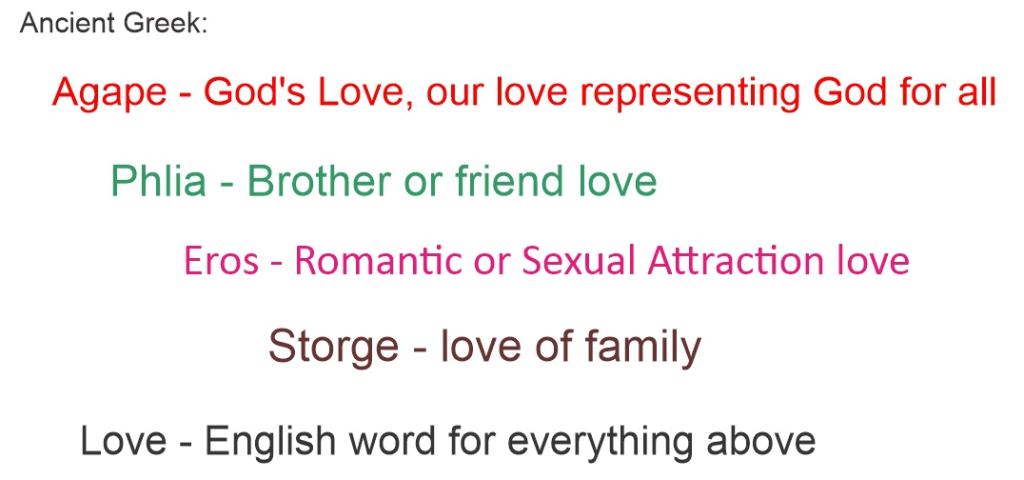God doesn’t depend on us for anything. God loves us and we depend on God. We’re expected to share that love with all others.

“What is man that You take thought of him, And the son of man that You care for him? Yet You have made him a little lower than God, And You crown him with glory and majesty! You make him to rule over the works of Your hands; You have put all things under his feet,” – Psalm 8:4-6 (NASB)
“See how great a love the Father has bestowed on us, that we would be called children of God; and such we are. For this reason the world does not know us, because it did not know Him.” – 1 John 3:1 (NASB)
“In this is love, not that we loved God, but that He loved us and sent His Son to be the propitiation for our sins.” – 1 John 4:10 (NASB)
Jesus asks, “Do you love me?”
The New Testament was written in Greek. It’s been translated into Aramaic (language of Jesus), English, and many other languages. Two words meaning types of “love” were translated in both Aramaic and English into one word: Love.
In the Greek this is very obvious in the passage where Jesus asks Peter if he loves him. But not so in the English translation below:
“So when they had finished breakfast, Jesus said to Simon Peter, “Simon, son of John, do you love Me more than these?” He said to Him, “Yes, Lord; You know that I love You.” He said to him, “Tend My lambs.” He said to him again a second time, “Simon, son of John, do you love Me?” He said to Him, “Yes, Lord; You know that I love You.” He *said to him, “Shepherd My sheep.” He said to him the third time, “Simon, son of John, do you love Me?” Peter was grieved because He said to him the third time, “Do you love Me?” And he said to Him, “Lord, You know all things; You know that I love You.” Jesus said to him, “Tend My sheep.” – John 21: 14 – 17 (NASB)
In Greek, the first time Jesus asked, he used the word “agape?” Agape is divine love that God has for us and we have for God and others. It’s part of the character of God.
Peter replied: “philia,” which is brotherly love.
The second time repeated the first time.
The third time Jesus asked, “philia?” Love me like a brother?
Peter replied, “philia.”
Peter was asked not just about loving Jesus like a brother or friend, but about a divine type of love for others – was this part of his character. Jesus clarified that Peter could show agape love for the followers of Jesus, but that he had a personal relationship with Jesus. He would spread Jesus’ message to others.
In English we don’t create a distinction about types of love. We don’t even separate “eros,” which is romantic or sexual attraction, out of the word love. In usage of the word love, we love everything from games to pictures to movies – the list is endless of things we love. We lose important distinctions.
Takeaway
God loves every single person on Earth more than we can imagine. Jesus was an example of God’s love. What Jesus asks of us isn’t to have some kind of affection for others, but to demonstrate the divine love for all others that God has for us. God expects his children, to whom he has given everything and loves beyond measure, to have that same love for all others.
________________________
The standard of belief and conduct for Christianity is love. If there is legalism, this is the legal standard above all.
________________________
If you find these articles intriguing, please consider joining the mailing list.
If I’ve challenged your thinking, I’ve done my job.
___________________
Our answer is God. God’s answer is us. Together we make the world better.
– Dorian













